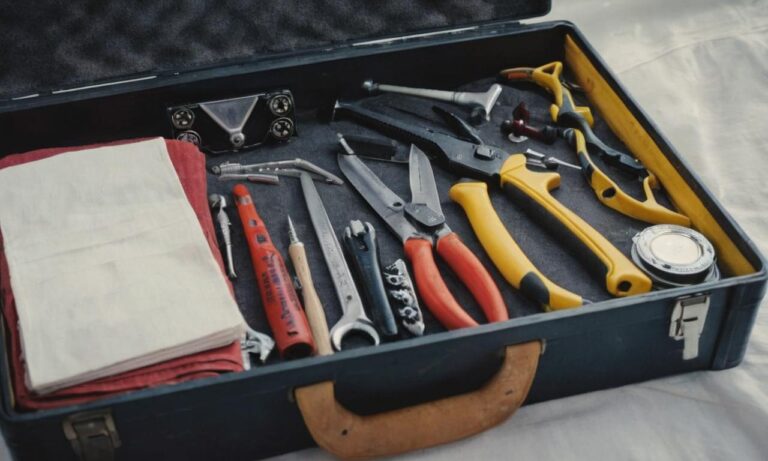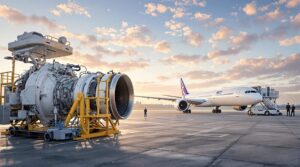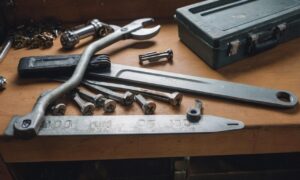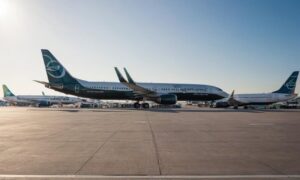Embarking on a career as an aircraft mechanic is an exciting journey that requires dedication, education, and a passion for aviation. In this comprehensive guide, we will explore the steps and essential information you need to know to become a successful aircraft mechanic.
The Basics of Aircraft Mechanics
Aircraft mechanics, also known as aviation maintenance technicians, play a crucial role in ensuring the safety and functionality of airplanes. They inspect, repair, and maintain aircraft components, including engines, landing gear, and avionics systems.
Educational Requirements
One of the primary steps to become an aircraft mechanic is to acquire the necessary education. Most employers require a high school diploma or equivalent, but pursuing a formal education in aviation maintenance through a Federal Aviation Administration (FAA)-approved program is highly recommended.
These programs, often offered by technical schools and community colleges, provide a solid foundation in aircraft mechanics. The coursework typically covers subjects such as aviation regulations, physics, and hands-on training with aircraft components.
Gain Practical Experience
While education provides a theoretical understanding, gaining hands-on experience is equally important. Many aspiring aircraft mechanics complete internships or apprenticeships with aviation maintenance facilities. This practical experience allows individuals to apply their knowledge in a real-world setting and develop essential skills for the job.
FAA Certification
After completing the required education and gaining practical experience, the next step is to obtain FAA certification. This involves passing written and practical exams administered by the FAA. There are different levels of certification, including Airframe and Powerplant (A&P) certifications, which are highly regarded in the industry.
Obtaining an A&P certification involves demonstrating proficiency in both airframe and powerplant maintenance. This certification is essential for individuals looking to work on various components of an aircraft, from its structure to its engines.
Specialize and Stay Informed
As the field of aviation maintenance evolves, it’s beneficial for aircraft mechanics to specialize in specific areas. This could include avionics, engines, or particular aircraft models. Specialization enhances expertise and makes individuals more valuable to employers.
Additionally, staying informed about advancements in aviation technology, safety regulations, and industry trends is crucial. Continuous learning through workshops, seminars, and industry publications ensures that aircraft mechanics remain at the forefront of their field.
Networking and Job Placement
Building a network within the aviation industry is vital for securing job opportunities. Attend industry events, join professional organizations, and connect with professionals in the field. Networking can open doors to job placements and provide valuable insights into the industry.
Consider reaching out to aviation maintenance companies, airlines, or aerospace manufacturers for potential job opportunities. Many employers appreciate proactive individuals who demonstrate a genuine interest in the industry.
In summary, becoming an aircraft mechanic involves a combination of education, practical experience, certification, specialization, and networking. By following these steps and staying dedicated to continuous learning, you can embark on a rewarding career in aviation maintenance. Remember, the sky is not the limit—it’s just the beginning of your journey as an aircraft mechanic.
Frequently Asked Questions
As you embark on the journey to become an aircraft mechanic, you might have various questions about the process. Here are some frequently asked questions to provide additional insights:
What Are the Key Skills Required for Aircraft Mechanics?
Aircraft mechanics need a combination of technical skills, attention to detail, problem-solving abilities, and strong communication skills. Proficiency in using specialized tools and equipment is also crucial for the job.
Are There Online Programs for Aviation Maintenance Education?
Yes, there are online programs that offer aviation maintenance education. However, it’s important to ensure that the program is FAA-approved and provides hands-on training opportunities, as practical experience is a key component of becoming a successful aircraft mechanic.
| Pros of Online Programs | Cons of Online Programs |
|---|---|
| Flexibility for remote learning | Limited hands-on training |
| Accessible to individuals in various locations | Requires self-discipline for online coursework |
Can International Students Become FAA-Certified Aircraft Mechanics?
Yes, international students can pursue FAA certification as aircraft mechanics. However, they need to ensure compliance with visa regulations and may face additional challenges in terms of work authorization and language proficiency.
Advanced Certifications for Aircraft Mechanics
Once you have obtained your initial FAA certification, you may consider pursuing advanced certifications to further enhance your skills and career prospects. These certifications can focus on specific aircraft types, advanced avionics systems, or emerging technologies in the aviation industry.
Exploring Career Paths in Aircraft Maintenance
While many aircraft mechanics work for airlines or maintenance facilities, there are diverse career paths within the field. Opportunities exist in areas such as aircraft manufacturing, inspection agencies, and even entrepreneurship for those interested in starting their own aviation maintenance businesses.
Ensuring Workplace Safety and Compliance
Workplace safety is a top priority in aviation maintenance. Aircraft mechanics must adhere to strict safety regulations and protocols to ensure the well-being of themselves and their colleagues. Staying updated on safety guidelines and participating in regular training programs is essential.






